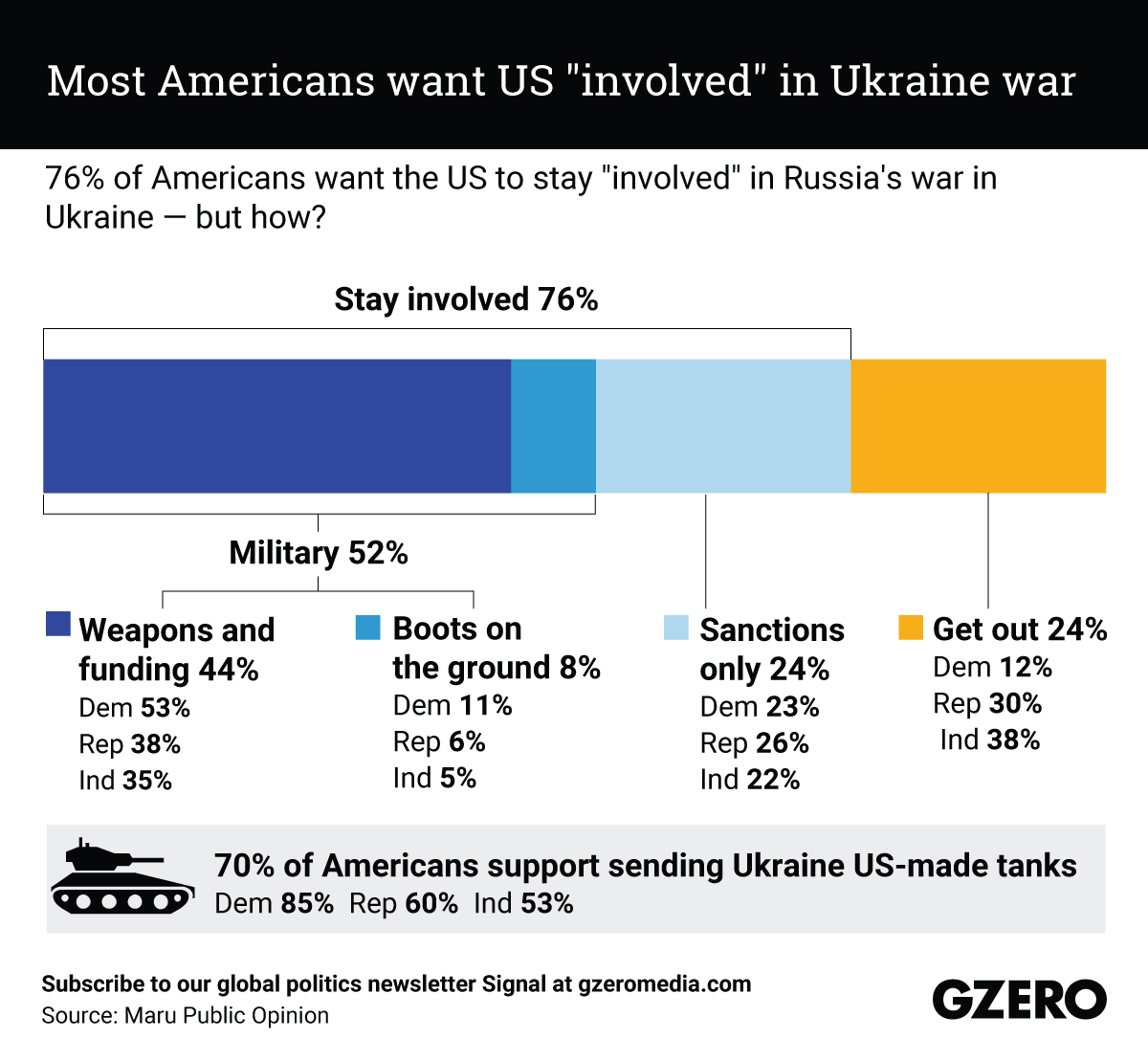The Graphic Truth: Most Americans want US "involved" in Ukraine war
February 01, 2023
Almost one year after Russia's invasion of Ukraine, the "West" is still firmly behind Kyiv — in no small part thanks to the US leading the way. But what do Americans think about their country's role in the conflict? In an exclusive new poll conducted by Maru Public Opinion for GZERO, more than three-quarters of respondents say they want the US to remain "involved" in the war, with the majority preferring to send weapons and funding as opposed to sanctions. Almost one-quarter would rather the US stay away and just 8% support crossing the border with American troops. Meanwhile, 70% agree with the Biden administration's recent decision to send US-made tanks to Ukraine.
